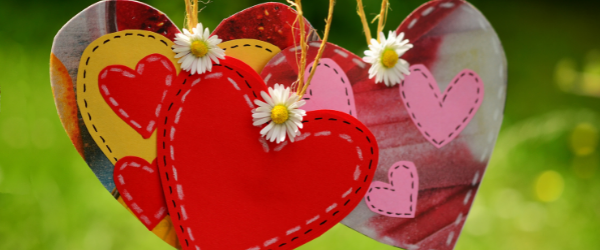Blog Post | 10 Ways to Connect and Nurture Your Relationships with ADHD
10 Ways to Connect and Nurture Your Relationships with ADHD
Strong relationships don’t just happen! Sometimes our clients express wishes to be more connected and feel closer to the important people in their lives. They may be spouses or significant others, children, family members, friends, our professional colleagues, and even the new people we meet. The very act of connecting and building relationships with ADHD relies on our use of executive function skills, managing emotions, and even our willingness to put ourselves out there. Here are a few tips and strategies that may help.
Shift your approach from reactive to proactive.
- Make a checklist of those you want to be more connected to and keep it handy. Refer to it often. The checklist can help remember who you want to connect with as well as organize and track your progress.
- Schedule a small chunk of time on your calendar for connecting with others on a weekly basis. Begin small enough that it is easy to follow through. For example, maybe it’s been a long time and a phone call feels awkward. Perhaps you send them a text message or a card as a first step. Even a 15 or 30-minute block of time once a week is progress.
- Create a “Gathering Tradition”. There are so many ways to go with this depending on the relationship. It could be a shared meal, a family meeting, a regular date night, a parent huddle, a monthly zoom call, an annual event or get-away.
Redefine how you want to be together.
- Random gratitude. Be quick to say thank you for the simplest of tasks or gestures. These are often overlooked leaving individuals feeling unappreciated or taken for granted. Being noticed and acknowledged for our efforts is a great way to build on relationships.
- Sharing. Share something from your day with your family from outside the home or inside your heart. Then ask them to share their story.
- Kick your inner judge to the curb. Sometimes good judgment is warranted to keep us safe or to make the best choices. Other times it creates a toxic critical narrative that serves no one. Be observant of your thoughts and be prepared to question the validity of those thoughts when it involves the intentions of others.
- Own your mistakes. Don’t try to deflect the blame when you make mistakes. Sometimes we may act too quickly in a shame response. Everyone makes mistakes. Create a pause to help you calm down and own it, apologize and affirm your role in the solution.
- Practice good listening skills. ADHD may interfere with remembering what was said, missing out on important details, interrupting, talking too much, or misunderstanding. One quick strategy is to have tools to help you capture the details in important conversations. Another, make eye or physical contact and turn or move away from visual or auditory distractions during a conversation. Find a way to paraphrase and repeat back what you heard in important conversations — “So, what I heard you say is ... Is that correct?”
Make connections in the moment.
- Smile and make eye contact. Better yet, make a practice of saying hello and calling someone by their name. If you have a hard time remembering names in the moment, it may help to review your day ahead of time and anticipate who you may run into.
- Don’t just say “We should get together sometime!” Ask “When can we get together or connect next?” Then schedule the follow-up task on your calendar, whether it’s to circle back later or a deadline to let someone know.
Everyone benefits from connection and surrounding ourselves with supportive and encouraging people in our lives. There are several ideas in this blog. Is there one that might help with connecting to important people in your life?

Robin Nordmeyer, PCAC, CLC
ADHD Coach | Center For Living Well with ADHD, LLC

